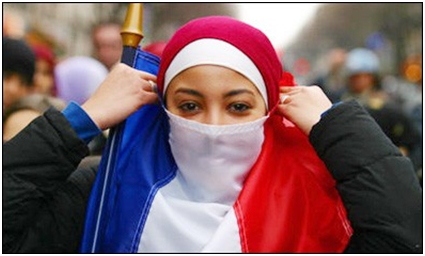
ECtHR upholds France decision to ban islamic veils for public officials
Employment and Social Affairs 21 December 2015The European Court of Human Rights has upheld a French law banning the wearing of the Islamic veil, the niqab. For the ECtHR, which ruled on 26th November 2015, with the judgment Ebrahimian against France, the French law, requiring public servants not to show their religious belonging through Islamic veil, complies with the European Convention on human rights and does not violate Article 9 which guarantees the right of religious freedom.
In December 2000, the applicant, who had been working for 15 months with a temporary contract as a social assistant in a public hospital in the Paris area, was fired. This was a disciplinary measure because of her refuse to stop wearing the Islamic headscarf. The applicant challenged this decision before the French courts but the judges ruled that the hospital was allowed to refuse the renewal of her contract on the basis of the principle of secularism of the French State, as well as the neutrality of public service. In the opinion of international judges, there has not been any violation of Article 9 because, despite wearing the Islamic veil can be considered as a means to express their religious beliefs as such protected by the provision of the Convention, the French interference is proportional and necessary in a democratic society because it ensures the impartiality of civil servants that should not affect the public, in this case the patients.
Thus, the Court acknowledges that France has achieved the right balance between freedom of religion and secularism of the State. Furthermore, according to the judges, the French law is in any way limiting the freedom of religion and conscience: religious freedom, they stressed, did not mean a right to express their religious views in the workplace. However, some Muslim women argue that the ban infringes their right to practice their religion and restricts their right to choose.
This ruling could be considered in some way as indicative of the European orientation, despite the fact that ECtHR is not an organ of the European Union. But we have to highlight that the EU has not competence on this matter that keep on being regulated by each state through their own legislative provisions.
Thus, we can consider that Strasbourg Court, as every national Court, should address those issues in a concrete way, based on the particular circumstances of a case, and not at the level of abstract and general principle. In this sense, each EU State is able to regulate the matter through its own legislation trying to find the right balance between national security legislation and religious freedom.







